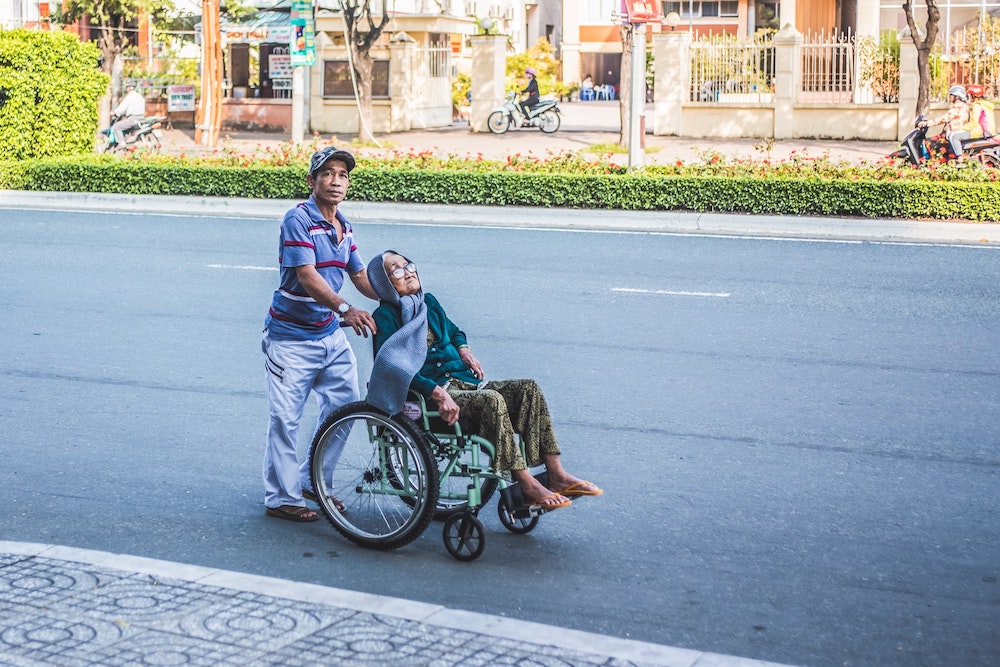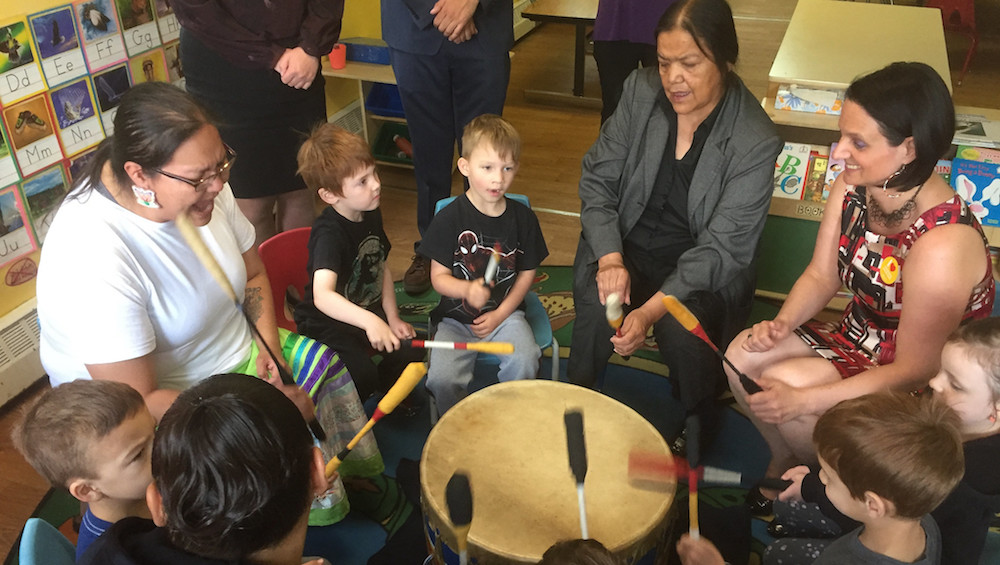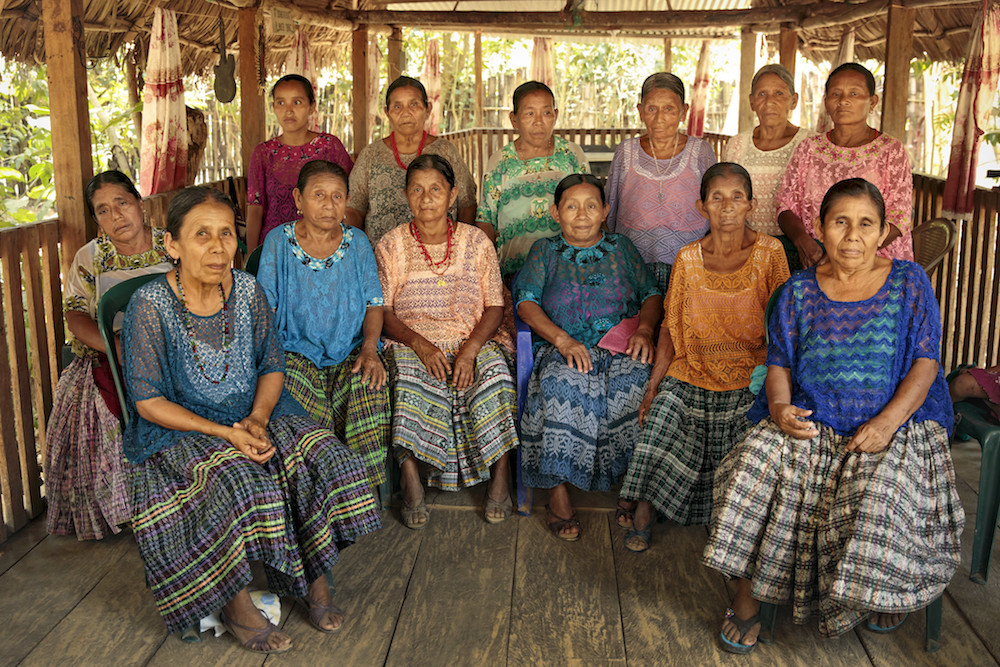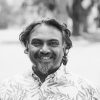How Elders Make Us Human
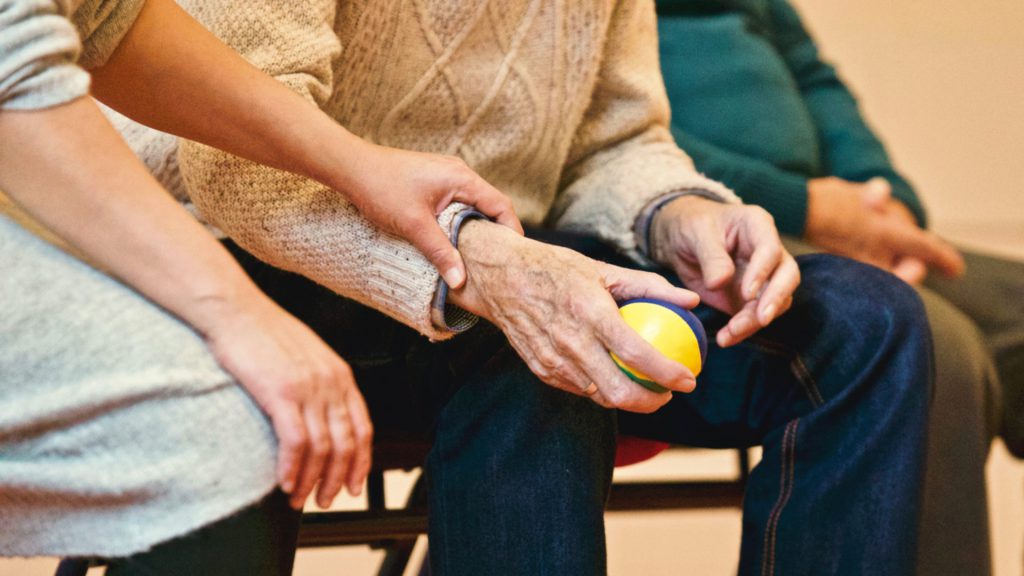
On March 23, Texas Lt. Gov. Dan Patrick sparked controversy and outrage by suggesting that older people in the United States might be willing to exchange their lives to keep the country’s economy going. “No one reached out to me and said, ‘As a senior citizen, are you willing to take a chance on your survival in exchange for keeping the America that all America loves for your children and grandchildren?’” said Patrick, who turned 70 this April. “And if that’s the exchange, I’m all in.”
With COVID-19 hitting human populations and economies around the world, some government leaders and public personalities have openly asked why we should be isolating ourselves, damaging our economy, and otherwise disrupting any sense of a functioning life to stop a disease that, back in March, was thought to possibly have a case fatality rate less than 1 percent. (The current measured case fatality rate varies a lot by country, ranging from below 1 percent to higher than 10 percent.) Some public personalities have suggested that if people in higher-risk groups are disproportionately impacted, then they can be sacrificed so that society can resume “normal” operations.
Simply put, no, we as a society cannot sacrifice our elders and those in need of help during this pandemic (not to mention the fact that it is not “just” older people who are at risk). Caring for our elders and those in need is a core part of what it means to be human.
Our species would not be where it is today without grandparents to care for younger offspring. Elders are reservoirs of knowledge and experience, critical for preserving history, traditions, and survival skills. And as anthropologist Margaret Mead is famous for opining, the moment when humanity began caring for those in need is when civilization truly began. Caring for those who are injured, ill, disabled, and/or older was the genesis of our humanity.
Frankly, there is little cause to have to justify why people should care for one another, including elders (pretty obvious, no?). But since Lt. Gov. Patrick raised the issue, let’s take a moment to pay tribute to the value of our elders over the long arc of human history.
To start with, grandparents were critical in the evolution of humanity.
Homo sapiens are unusual in the animal kingdom in the sense that our females live such a long time after they stop being able to give birth—it has been estimated that women live a third of their lives after menopause, while female chimpanzees, for example, rarely survive long after the end of their fertile period. This poses an evolutionary conundrum: Why would some hominins spend precious resources supporting members who can’t reproduce?
The “grandmother hypothesis” proposes an explanation: During humanity’s evolution, grandmothers (and grandparents more generally) contributed to the family’s resources, allowing for parents to forage farther and reduce the amount of time between their children, creating larger families.
This theory was developed through ethnographic studies of Hadza communities: hunter-gatherers living in modern-day Tanzania. Anthropologist Kristen Hawkes and her colleagues documented how Hadza grandmothers play a critical role in feeding and caring for grandchildren within their household, and used this observation to posit that long postmenopausal life spans were important in the evolutionary history of hominins more broadly: It could have made a big difference during a time of increasing desertification in Africa around 2 million years ago, for example, when food became scarce. By the time of the Upper Paleolithic, beginning around 40,000 years ago, there was a huge boost in the number of people who survived long enough to be grandparents.
In short, tough times gave an evolutionary advantage to families whose women lived beyond menopause and provided a selective boost to communities in which elders had longer lives.
Put another way, humanity’s evolutionary fitness was enhanced by caring for elders because providing this care improved our ability to have more children. The loving care of family units kept grandparents going, and by staying alive, they gave back to their families in kind by providing care for their children’s children. Anthropologists call this alloparenting, and it helps to offset the challenges and costs of child rearing.
In addition to often providing child care, elders have long served a vital role as bearers of knowledge.
Elders the world over store knowledge accumulated over generations, which, when given the opportunity, can be recorded and passed on to younger individuals and families. In the U.S. South, where I live, elders have the wisdom to skin a squirrel, make soap, and boil wild greens into an edible pokeweed salad.
By definition, elders have lived longer and so have accumulated valuable knowledge about how the world works—they perceive and deeply understand how slow, long-term changes occur in the environment and in society. Elders in Indigenous communities the world over are the record-keepers of science, medicine, and history. For example, female elders in Brazil’s state of Bahia know much about plant species and their medicinal values. Unfortunately, much of the knowledge that Indigenous elders carry with them is threatened by language loss, environmental decimation, climate change, and disease.
Caring for older people is a matter of our humanity that extends deep into our evolutionary history.
Social worker and scientist Shanondora Billiot at the University of Illinois, Urbana-Champaign, and her colleagues have documented how the transmission of knowledge from elders in the United Houma Nation, a Native American community in southern Louisiana, has declined over time. In the Houma region, food and medicines were once procured locally through gardens, foraging, and trapping animals; local healers, known as traiteurs, made traditional medicines for coughs and asthma. Billiot and her team’s study shows that the transmission of this traditional knowledge has taken a hit from various factors, such as repeated environmental disasters like hurricanes, long-term environmental issues, and discrimination and oppression. These factors have eroded traditional community structures, extended family kin groups, and longstanding Indigenous social networks, impacting the ways in which elders pass information on to the next generations.
This unfortunate fact is worth fighting to reverse—not to accept or to accentuate through this pandemic.
Caring for older people is a matter of our humanity that extends deep into our evolutionary history.
Some 45,000-year-old Neanderthal burials provide anthropologists the surest evidence for how elders and those who were ill were cared for by ancient hominins. At a site called Shanidar, in the Zagros mountains of Iraqi Kurdistan, excavations of a burial show how an elderly male Neanderthal with arthritic diseases and multiple traumatic impacts was well cared for in his dotage. Despite suffering a crippling blow to his left eye, worn teeth, hearing loss, an amputated arm, and a fractured vertebra, likely leaving him significantly crippled in life, he lived, healed, and was clearly cared for by others in Neanderthal society.
It truly is amazing to think how, even 45,000 years ago, our ancestors cared for one another in times of need. Archaeologists and paleoanthropologists working at the 26,000-year-old site of Dolní Věstonice, an ancient human village in the modern-day Czech Republic, uncovered the burial of an elderly woman. This elder was buried ritualistically under a mammoth scapula and covered in red ochre, and was likely represented through clay figurines also found at the site. This special burial treatment suggests that during her life she possessed special knowledge and/or skills that were important to her community.
In contemporary societies, we have hospitals and homes where those who are ill, disabled, or in their elder years can be cared for. There are often other social structures to lean on to alleviate the burdens of parenting, from day cares to schools. And there are books, documentaries, and online publications to help perpetuate knowledge. But the core, ingrained human desire to care for our elders remains. As paleoanthropologist Rachel Caspari has argued, humanity has benefited greatly from its reverence, care, and support of elders.
Humanity’s success has long depended upon our elders’ help. Today our moral and ethical success will be determined by whether we return the favor. If we sacrifice the health of our older people and those who are ill for an ephemeral economy based on stock market futures and shareholder profits, what will we gain? Not our humanity. Instead, we will lose it.



























